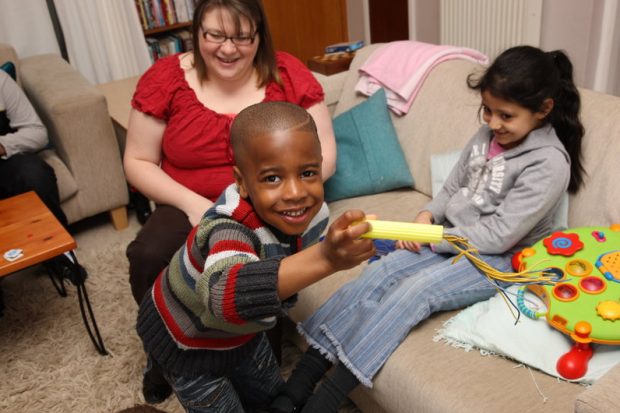
No one ever became a social worker because they wanted to fill out forms.
I’m sure, like me, you work in children’s services because you care about children who need help. Always through no fault of their own.
Yes, it is challenging. Social workers and residential staff have the power to change a young person's life. As a social worker recently told my colleague: "It doesn't get more gratifying than that.”
Impact and high stakes
Given the impact and high stakes nature of the job, I know that there can be resentment about the amount of paperwork involved. Perhaps some see this as taking away from their main, all-important role in working directly with children and their families.
But record keeping is important. It helps to focus on what’s happening and what needs to change. It is also for adults, who may want to understand what happened to them as children and why decisions were made about their lives. However, I want to stress that social workers and care staff should not keep records specifically just for Ofsted. This is just one of the many myths about inspection that has grown up over time.
For instance, I also know that myths have developed about our inspections of children’s homes. I’ve heard staff saying that Ofsted favours small children’s homes. In fact, three quarters of children’s homes are good or outstanding. That applies to 1 or 2 bed units as it does with larger children’s homes.
It’s been said that that achieving an outstanding rating at a first inspection is impossible. In fact, in 2013/14 Ofsted judged six per cent of children's homes to be outstanding at their first inspection. That proportion rose to 12 per cent in 2015/16.
Understand the circumstances
I’ve also heard that if you offer a home to a child that regularly goes missing your inspection judgement will automatically drop. In fact, inspectors take this issue into account, but it doesn’t, on its own, mean that the children’s home will go down a grade. Inspectors will want to understand the circumstances of why a child may be going missing and what action the manager and staff are taking in respect of this.
So these myths are all completely untrue.
But perhaps the worst myth is that Ofsted has a preferred way of operating a children’s home or running a children’s service. We do not have a preferred way of working – across all of our remits. That’s one of the reasons why are talking with those local authorities that are trying to think of new ways of working that will make things better for children. We do not want to get in the way of their creative thinking. What matters to us is what difference their plans make for children.
Inspections matter
Ofsted inspections matter. That is no doubt why social workers and children’s home staff are often nervous about them. I can understand that.
But it’s worth remembering that Ofsted's social care inspectors have all worked in the sector themselves. Many of them have experienced inspection from the other side. They can put themselves in your shoes and they understand that, for example, when they visit a children's home, the children might behave differently.
Many social workers have told us that their actual experience of an Ofsted inspection was better than they had feared. This gives me some confidence that we are in a place where inspection is about working with the sector, not against it.
We will continue to bust any myths about what we expect to see when we inspect.
But please, if you remember one thing, remember to do it for the child; not for the inspector.